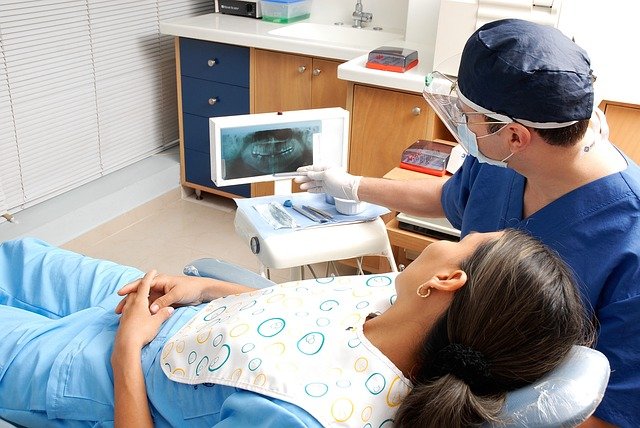Lymphoma Treatment Options That Could Change Your Path Forward
Looking for trusted information on lymphoma treatment? Learn how personalized care plans in the US might support better outcomes and provide a path forward. Understand what steps to take when exploring your options. Treatment has advanced more than many people realize.

Lymphoma represents a complex group of blood cancers that originate in the lymphatic system, affecting millions of people worldwide. The disease encompasses over 70 different subtypes, broadly categorized into Hodgkin lymphoma and non-Hodgkin lymphoma, each requiring distinct therapeutic approaches. Modern treatment strategies have evolved significantly, offering patients multiple options based on their specific diagnosis, stage of disease, and individual health factors.
What Are the Primary Treatment Approaches for Lymphoma?
Lymphoma treatment typically involves several core modalities that can be used individually or in combination. Chemotherapy remains a cornerstone treatment, utilizing powerful medications to target and destroy cancer cells throughout the body. Radiation therapy focuses high-energy beams on specific areas to eliminate localized cancer cells. Immunotherapy harnesses the body’s immune system to fight cancer, while targeted therapy uses drugs designed to attack specific cancer cell characteristics. Stem cell transplantation may be recommended for certain cases, particularly when other treatments have not achieved desired results or for aggressive lymphoma types.
How Do Lymphoma Treatment Centers in the USA Approach Care?
American lymphoma treatment centers emphasize multidisciplinary care teams that include hematologists, oncologists, radiation specialists, and supportive care professionals. These centers typically begin with comprehensive staging procedures to determine the extent of disease spread. Treatment planning involves genetic testing of cancer cells to identify specific mutations that might respond to targeted therapies. Many centers participate in clinical trials, offering patients access to experimental treatments that may not be widely available. The approach often includes palliative care integration from diagnosis to address symptoms and improve quality of life throughout treatment.
Which Hospitals Specialize in Advanced Lymphoma Care?
Several renowned medical institutions across the United States have established specialized lymphoma programs with dedicated research and treatment facilities. These centers combine clinical expertise with ongoing research initiatives to advance treatment options.
| Hospital System | Location | Specialized Programs | Key Features |
|---|---|---|---|
| MD Anderson Cancer Center | Houston, TX | Lymphoma Research Center | Clinical trials, CAR-T therapy |
| Memorial Sloan Kettering | New York, NY | Lymphoma Service | Precision medicine, immunotherapy |
| Mayo Clinic | Multiple locations | Hematologic Malignancies | Integrated care teams |
| Dana-Farber Cancer Institute | Boston, MA | Lymphoma Program | Research partnerships |
| City of Hope | Los Angeles, CA | Lymphoma & Myeloma | Bone marrow transplant |
What Makes Non-Hodgkin Lymphoma Care Different?
Non-Hodgkin lymphoma encompasses a diverse group of cancers with varying growth rates and treatment responses. Unlike Hodgkin lymphoma, non-Hodgkin types tend to spread in a more unpredictable pattern and often require different therapeutic strategies. Treatment selection depends heavily on whether the lymphoma is classified as indolent (slow-growing) or aggressive (fast-growing). Indolent lymphomas may sometimes be managed with a watch-and-wait approach, while aggressive forms typically require immediate intensive treatment. The presence of specific genetic markers influences treatment decisions, with some subtypes responding better to particular targeted therapies or immunotherapy approaches.
What Cancer Treatment Options Are Available in the US?
The United States offers comprehensive cancer treatment options through various healthcare systems and specialized centers. Treatment accessibility varies by geographic location and insurance coverage, but major metropolitan areas typically provide access to advanced therapies including CAR-T cell therapy, precision medicine approaches, and participation in clinical trials. Many centers offer second opinion services and coordinate care with local oncologists for patients traveling from distant locations. Supportive services often include nutritional counseling, social work support, and integrative medicine options to complement traditional treatments.
The landscape of lymphoma treatment continues evolving with ongoing research into new therapeutic targets and treatment combinations. Patients diagnosed with lymphoma today have access to more treatment options than ever before, with many achieving long-term remission or cure. The key to optimal outcomes lies in working with experienced healthcare teams who can navigate the complex decision-making process and tailor treatment plans to individual patient needs and preferences.
This article is for informational purposes only and should not be considered medical advice. Please consult a qualified healthcare professional for personalized guidance and treatment.




